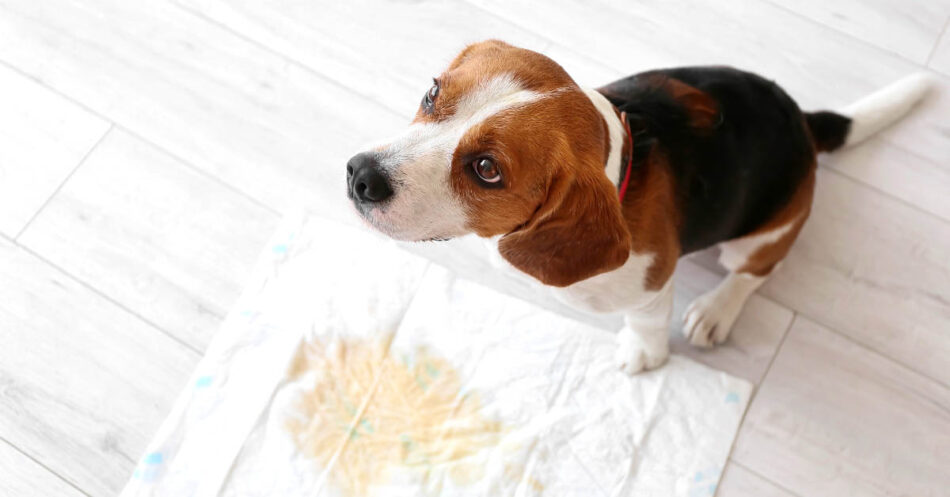
What to Do When Your Pet Pees in the House
This post may include affiliate links. Please read my disclosure policy.
If you’re a cat or dog parent, few things are as frustrating as when your four-legged friend starts doing his business in the wrong place! It’s messy, it’s smelly, and it creates a lot of extra work.
The good news is that peeing in the house or outside the litter box is not a sign that your pet is “mad at you” or trying to get back at you for something. What it may mean is that your pet is feeling the need to establish his territory or that he is urinating in response to a health ailment or a situation that is causing him some anxiety. Figuring out what is causing the behavior may involve some trial and error — and possibly a vet visit, but once you’ve figured out the reason for their accidents, the problem is usually fixable.
The solution to a pet peeing problem is different depending on what is causing the behavior. Here are a few of the most common reasons for pets to pee in the house and what you can do about it.
1. Medical Issues
Bladder infections, urinary tract infections, and kidney disease can all cause pets to urinate frequently. So if your dog or cat is having accidents, a visit to the vet can rule out any serious problems that need to be treated.
2. Not Being Spayed or Neutered
Unaltered cats and dogs (especially males) are much more likely to engage in urine marking behaviors. Having your pet spayed or neutered when they are young may prevent the problem from ever starting in the first place. But if your older unaltered pet has begun spraying, spaying or neutering can lessen, or even eliminate, the behavior.
Pin me!
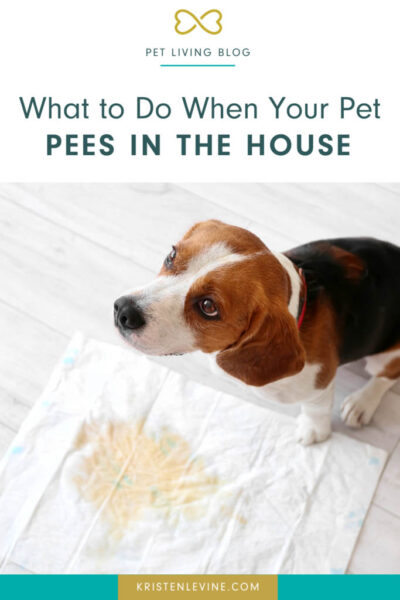
3. Conflict With Other Animals
This is frequently an issue in multi-pet households, but some dogs or cats may begin marking in response to animals they observe outside as well. If you think dominance issues may be the root cause of your pet’s urine marking, your vet can probably give you some great advice on resolving things. The following tips work for many pets:
If you’re a dog parent, it’s important to establish yourself as the pack leader. This way your pups won’t feel the need to compete over who’s the alpha dog. One way to do this is to make your dog work for rewards. Make him sit or do another trick before you feed him or before you take him for walks and let him in the house. He’ll quickly figure out who’s in charge!
For cats, providing elevated perches and covered hiding places makes it easy for them to avoid each other when they need to, and thus deter them from marking their territory. Multiple litter boxes may also help, especially if one kitty has claimed the litter box as her own and is preventing her siblings from entering. Many cat experts recommend one box per cat, plus one in common.
And speaking of litter boxes….
4. Litter Box Issues
Making sure your cat’s litter box is as accessible and appealing as possible can go a long way towards encouraging her to use it!
Cats appreciate a clean litter box as much as we appreciate a clean bathroom. And they can be quickly turned off by a litter box that is smelly or dirty. So cleaning the litter box frequently is a must. Scoop it out at least daily, and possibly more often if you have multiple cats.
Kitties can also be fussy about the kind of litter box they use. Many cats prefer an open box with lower sides to one that’s enclosed. This may make clean up a little harder, but if it keeps them using the box it’s worth it!
Keeping the box in a far off corner of the home may also discourage cats from using it consistently. As much as you may want to hide it away in a closet or a basement, your cat might not bother to go find the hidden litter box when he has to go. If your home has more than one story, a litter box on every floor will make it much more convenient for kitty.
5. New Objects in the House
New items like throw rugs and furniture, or even a guest’s coat or purse, may trigger the urge to mark. This is simply your pet’s way of “putting his name” on the new arrival.
Keeping guest’s belongings out of reach is an easy way to keep an animal from claiming them as his own. Feeding and playing with your pet in an area where there are new objects may also keep him from feeling the need to mark.
6. Lingering Scent
It’s important to thoroughly clean any area where your pet has urinated. Remember, animals have much better noses than we do, so just because it smells OK to you doesn’t mean they won’t be able to detect a lingering urine smell. And if it smells like pee to them, that’s an invitation to return to the scene of the crime!
My cat, Olivia, recently developed the bad habit of urinating on my bathmat. I would wash it, but she would just do it again. I found that using a treatment made especially for urine went a long way towards preventing re-peeing.
You also need to remove any lingering urine scent from floors, carpeting, or upholstery. My Kinderbean No Stress Mess Eraser uses powerful enzymes that activate upon contact to eliminate odors and completely break down organic waste. It’s made with only five natural ingredients – no harsh chemicals or residues – so it’s safe to use around children and pets.
If your pet has been peeing in the house for quite a while, chances are that there are spots in your house that you may not remember – but you can be sure your pet knows where they are. Unless you find and treat those spots, the scent is just drawing your pet back to re-pee. A simple LED light like this one can help you to locate all the hidden or forgotten places that your pet has marked in the past so that you can eliminate the lingering odor for good.
Like so many other pet-parenting challenges, helping a pet who pees in the house us usually a matter of figuring out what is going through his mind to make him behave that way. Once you’ve got that down, you can tackle the problem with a little patience and persistence.
This is a sponsored post. However, all opinions and anecdotes are my own, and I never promote any products or brands I don’t believe in. ~Petfully yours, Kristen

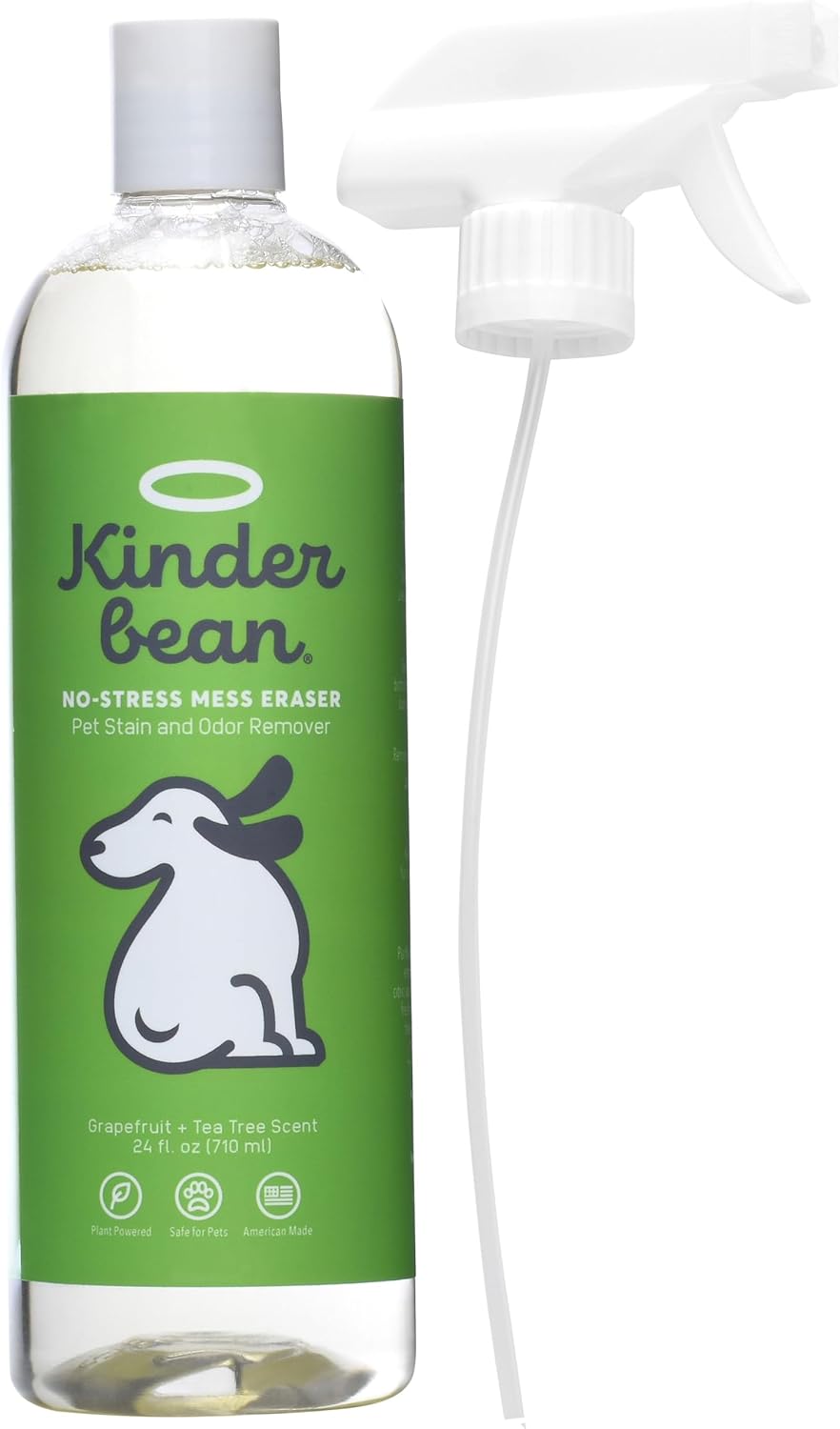

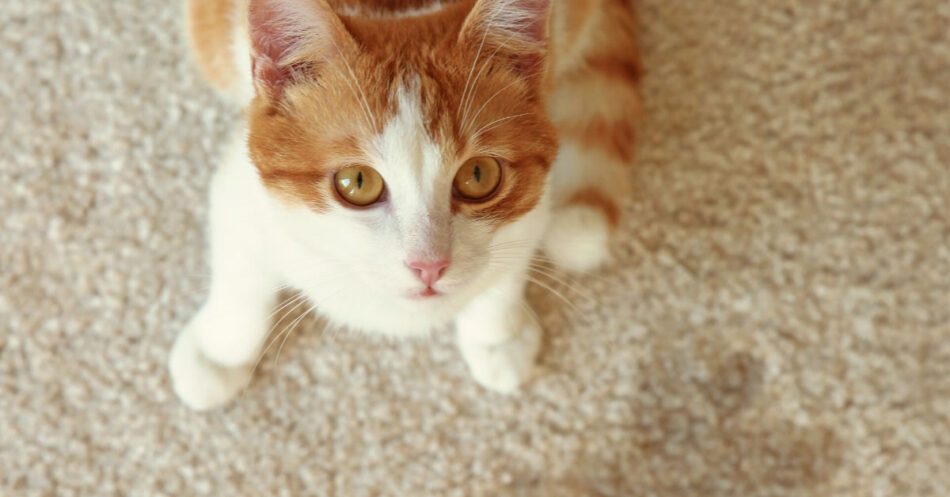
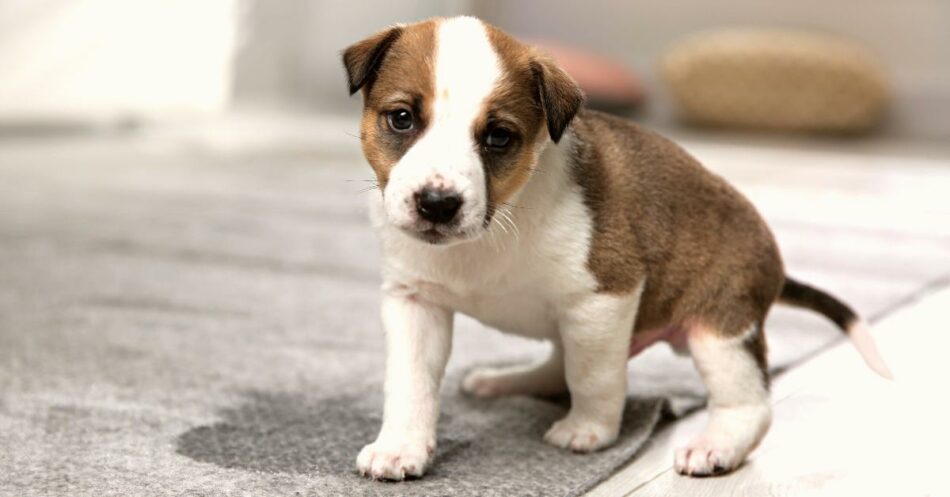
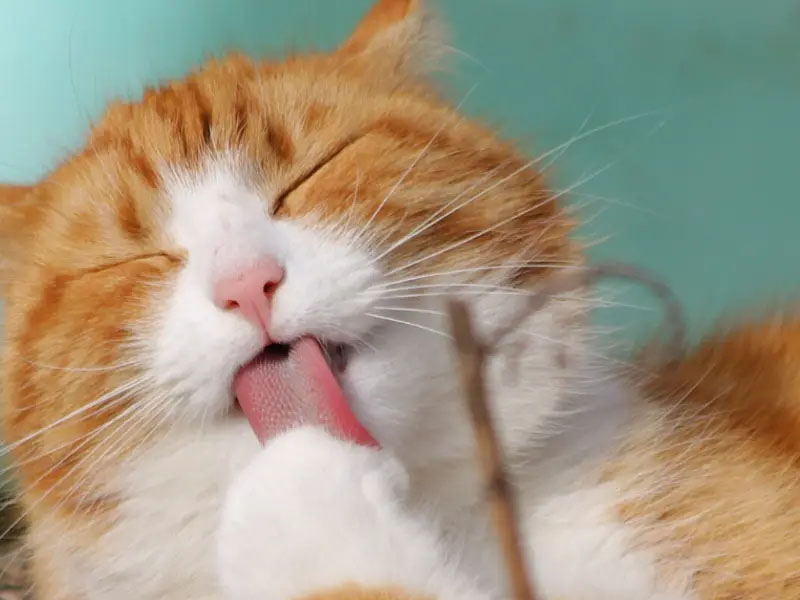
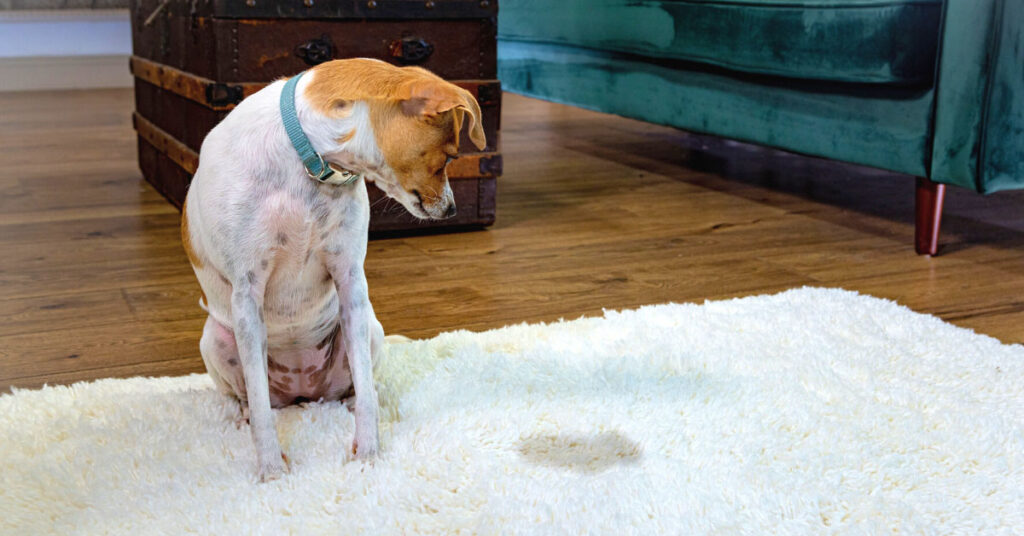
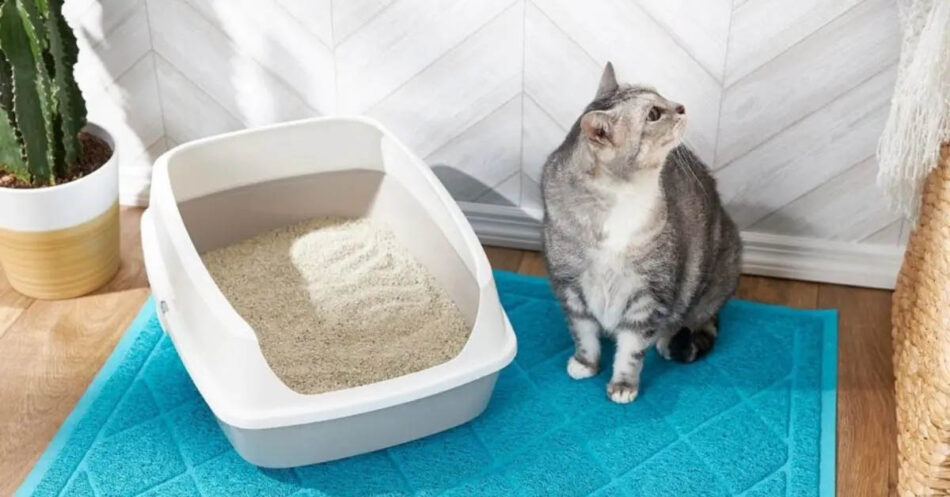
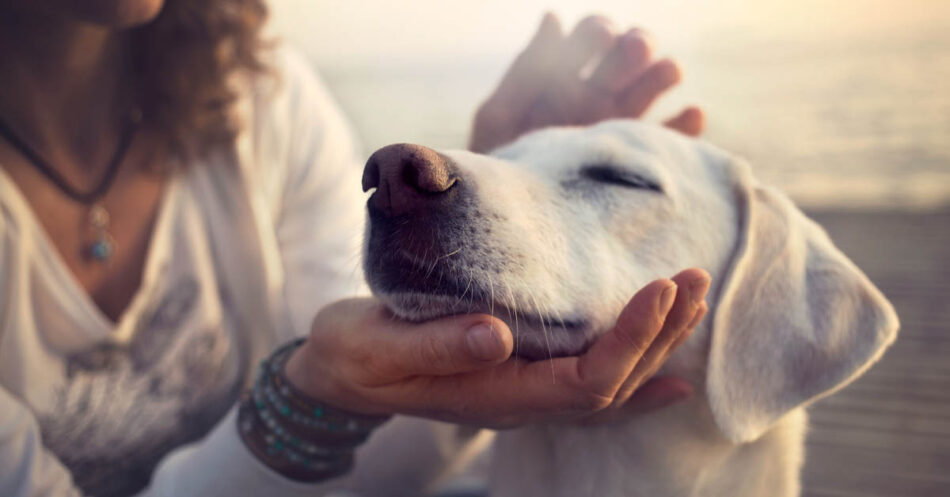
Comments (0)